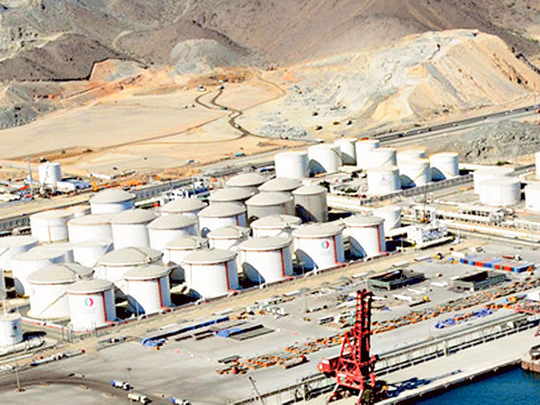
Dubai: Excessive dependence of Gulf economies on the hydrocarbon sector could potentially become a major vulnerability to their economies and sovereign credit strength, but among the GCC oil exporters, the UAE is ahead of the rest according to Standard & Poor’s Rating Services.
“We view the GCC states’ dependence on the oil and gas sector as a key vulnerability. A sharp and sustained fall in the oil price or in hydrocarbon export volumes would significantly dent their economic and financial indicators,” said Trevor Cullinan a credit analyst with Standard & Poor’s.
Although the UAE remains highly oil dependent, it is the least vulnerable to oil price declines or export volume declines among the six GCC countries. “The UAE economy appears the most diversified in the GCC with Abu Dhabi is still heavily oil-dependent with hydrocarbons as a proportion of nominal GDP and government revenues reaching 55 per cent and 65 per cent, respectively. However, the other six emirates of the federation have a significantly smaller hydrocarbon endowment and have developed other industries as a result,” said Remy Carasse, an analyst with S&P.
According to S&P analysts, on average, hydrocarbon revenues constitute 46 per cent of nominal GDP and three-quarters of total exports of the six GCC countries with dependence on hydrocarbon revenues appears to be increasing. While Bahrain and Oman are highly vulnerable to a fall in hydrocarbon prices or production, the UAE and Qatar are ranked least vulnerable.
Based on 2013 data, for Bahrain the oil price already needs to be about $18 higher than the current oil price for the sovereign to achieve a balanced budget. Oman has the second-highest breakeven oil price among the GCC sovereigns.
Kuwait appears the most dependent GCC country on hydrocarbon resources in terms of its dominance in GDP and exports. Although hydrocarbon revenues account for about 80 per cent of total government revenues, Kuwait’s fiscal breakeven oil price is the lowest in the region. This would indicate that to some extent the Kuwaiti government has restrained expenditure in relation to the growth in hydrocarbon revenues.
Oil and gas account for more than half of Qatar’s nominal GDP and 90 per cent of export revenues.
“Concentration risk related to the economy’s reliance on hydrocarbon resources remains high. However, we expect Qatar to maintain production at currently high levels for the longest period of time of all the GCC countries. At the same time, Qatar’s fiscal breakeven oil price is low and close to that of Kuwait,” said Cullinan.
The UAE and Oman have made the greatest progress in reducing the hydrocarbon component of their exports. The concentration of the UAE’s hydrocarbon exports as a percentage of total exports has declined by almost 15 percentage points since 2001, mainly owing to re-exports and the services exports of Dubai. Oman reduced its export dependence by almost 10 percentage points between 2001 and 2013, to stand at 66 per cent of total exports in 2013.











